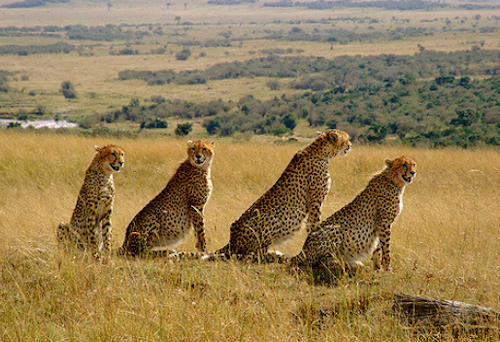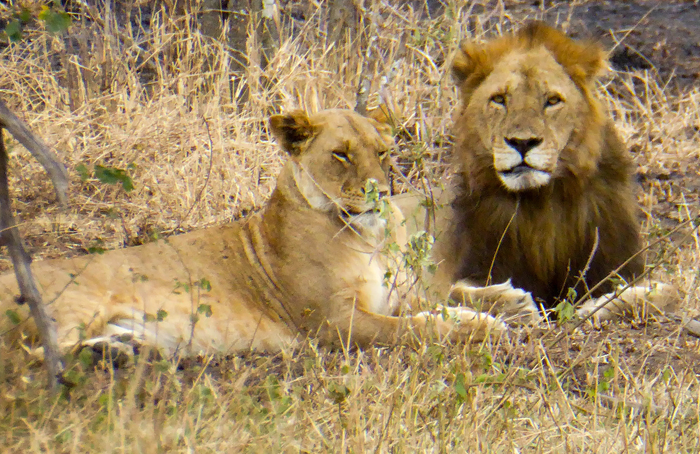To ensure that your trip to Mombasa is enjoyable and easy You must be aware of security concerns and safety issues. These are the most crucial points to keep in mind.
1. General Safety
Keep yourself informed. Keep up with local news and any travel advice given by the country you're traveling to.
Register with your embassy: If you are required to register, do so at the embassy of your country in Kenya in order to receive assistance in times of need.
2. Health Precautions
Vaccinations. Be sure you are up-todate with your routine vaccinations.
Mombasa has a high malaria incidence. Utilize antimalarial medication as well as insect repellents. Wear long sleeves at night and sleep in mosquito nets.
Water and Food Security Drink boiled, bottled or cooked water. Avoid ice. Be aware of street food.
3. Personal Safety
Avoid walking alone at night. Be sure to stay in areas that are well lit with a lot of people. Avoid walking on the beach or in remote areas after it gets dark.
Use hotel safes when storing valuables such as passports, currency, and other important items. Avoid displaying costly items such as electronic devices or jewelry.
Secure Transport: Only take certified taxis. You can also choose taxi-hailing services or transport that is provided by your hotel. Avoid taxis with no markings.
4. Local Laws and Customs
Be respectful of the local culture. Dress modestly especially when visiting religious places. Be familiar with local customs and practices.
Drug Laws: Kenya has strict drug laws, with harsh penalties. Beware of using illegal drugs.
Photography: Ask for permission to take photos prior to taking photographs of people, especially in rural areas or close to government or military installations.
5. Beach and Water Safety
Be Safe Take note of local recommendations regarding swimming conditions and currents. Be sure to use designated swimming areas.
Marine Life: Be mindful of marine animals like jellyfish and Urchins. If you are walking along the beach, ensure you wear footwear that is suitable for your feet.
6. Crime Prevention
Petty Crime: Pickpocketing, as well as bag snatching can occur especially in crowded areas. Make sure your possessions are secure and stay vigilant.
Scams: Be cautious of anyone who offers assistance that seems generous or that seem too good to be real. Utilize authorized tour operators.
Emergency Contacts - Learn the local emergency number (999) which includes the Fire Department (999) as well as the Ambulance Service (999). Contact information for the Consulate or Embassy of your nation should be readily accessible.
7. Natural Hazards
Weather: Mombasa experiences a tropical climate. The possibility of heavy rainfall and flooding can occur, particularly in the rainy season. Stay informed about weather forecasts.
Sun protection: Apply sunscreen, wear hats and stay hydrated in order to prevent sunburn and heat exhaustion.
8. Travel Insurance
Comprehensive coverage. Check that the travel insurance you purchase includes protection for emergency medical situations, theft, and loss, as well interruptions to travel. Check that the policy you have includes protection for all activities such as water sports.
If you consider these security and safety aspects, you'll have a more enjoyable holiday in Mombasa. Check out the most popular taxi in mombasa for site info including kenya travel, kenya beach and safari holiday, kenya mombasa holiday packages, mombasa beach kenya, kenya safari beach, safar kenya, safari company kenya, african safari packages, mombasa tours, kenya holiday packages and more.

What Should I Know About The Weather In Mombasa While I Am On Vacation?
It is important to understand the weather patterns of Mombasa before you pack and enjoy your trip. Here are the top factors to consider when planning your trip.
1. Climate Overview
Mombasa enjoys the tropical climate, which means all-year-round high temperatures. You can expect warm weather, with temperatures that range between 24 degrees Celsius (75%F) to 32degC (90%F).
2. Seasons
The season of hot and humid (November toApril) The time of year when the temperatures are extremely high, and the humidity is high. This is also the busiest tourist season, particularly in January and December.
Long Rains: (April-June) The rainy season is marked by severe rainfall and thunderstorms. Roads can become slippery and difficult to navigate. The season of lows is upon us.
The cooler season (June-October) is the ideal time to visit, since temperatures are lower and the humidity level is lower. The weather in general is pleasant, making it ideal for outdoor activities.
Short Rains (October-November) The time of the year is distinguished by shorter and less intense showers of rain. The rains are usually only a few minutes, they are followed by sun.
3. Packing Tips
Wear lightweight, breathable clothes like cotton or linen to keep cool during hot weather.
Rain Gear: If you're traveling in the rainy season take waterproof clothing as well as an umbrella and waterproof shoes.
Sun Protection: A sunscreen that is high in SPF broad-brimmed cap, sunglasses lightweight clothing, and covering the skin with light clothes will help protect you from intense sunlight.
Wearing a swimsuit is essential for beach days and the hotel pools.
4. Weather-specific activity
Beach Time. The ideal time to be at the beach would be in the cooler months (June to October) which is when the temperatures are pleasant and conditions at the ocean are ideal.
A calm and clear ocean is ideal for snorkeling, diving and other watersports from November through March.
Wildlife viewing. The cooler seasons (June-October) are also great for safaris or wildlife tours since the temperatures are less uncomfortable.
5. Questions of Health
Hydration: Staying hydrated is vital in this hot, humid climate. Take plenty of fluids especially during your time outdoors.
The heat-related illnesses: Be aware to the dangers of heat exhaustion or heatstroke. Make breaks in the shade, wear loose-fitting clothes and avoid strenuous exercise during peak heat.
6. Adjustments to Travel
Traveling during the rainy season: You should be ready for travel disruptions when you travel during this period. Some roads may be impassable and outdoor activities may be restricted.
The rainy season is often the cause of delays on flights. Make contingency plans and keep up-to-date with your travel plans.
7. Environmental Considerations
Natural Hazards: Be aware of the risk of flooding in heavy rains. Be aware of current weather conditions, and seek local advice on security.
Remember to be aware of the tides. They can change dramatically. Check the tide schedules for your area when planning activities on the beach and swimming.
It is possible to plan your vacation activities more efficiently, pack your bags properly, and enjoy your time in Mombasa while being safe knowing the weather conditions. Check out the top kenya tours and safaris Wasini Watamu for site recommendations including tour company, kenya safaris, kenya safari beach, tours and safaris in kenya, african safari africa, kenya safari and beach packages, holiday packages mombasa, tours & safaris, tour firms in kenya, tours safari africa and more.

What Safari And Tour Plans Should I Be Aware Of Before I Travel To Mombasa Kenya?
A safari or a tour during your trip to Mombasa, Kenya, requires careful planning to ensure an unforgettable and enjoyable experience. Remember these essential factors:
1. Selecting the right Safari or Tour Operator
Select a tour operator with an excellent track history. You can locate accredited tour operators with the Kenya Association of Tour Operators.
Review the various packages offered by the various tour operators. Packages range from budget-friendly to lavish and differ in terms of length and the activities that are included.
Guides: Make sure that the tour operator offers expert, knowledgeable guides. They must be vetted by relevant organizations.
2. Popular Safari Destinations in Mombasa
Tsavo Park: Kenya's largest game reserve, divided into Tsavo West and Tsavo West. It is well-known for its diverse wildlife which includes elephants, lions and rhinos.
Amboseli National Park is famous for its elephant herds, as well as the spectacular views of Mount Kilimanjaro.
Shimba Hills National Reserve, close to Mombasa offers scenic landscapes with the chance to view rare animals such as the Sable antilope.
Maasai Mara (Mombasa): The area, while further than Mombasa offers an unmatched wildlife experience, and is famous for the Great Migration.
3. Safaris and Tours Types
Game Drives are an old-fashioned safari which includes 4x4 vehicles game drives, providing close encounters with wildlife.
Walking Safaris: Guided walking tours offer a unique opportunity to get out in the bush and learn about the smaller fauna and flora.
Balloon Safaris can be found in parks, including the Maasai Mara which offers a bird's eye perspective of the wildlife.
Beach and Bush Combos - Combine an experience on safari and a time spent at the gorgeous Mombasa beaches for an unforgettable experience.
Cultural Tours: Visit villages as well as historical sites such as Fort Jesus and Mombasa Old Town.
4. Timing and Duration
The best time to visit Dry season (June to Oktober) is the best time to observe wildlife, as animals congregate near water sources. The Great Migration in Maasai mara usually occurs between July to October.
The duration of safaris can vary from day trips to week-long excursions. Take note of your schedule as well for the time you'd like to stay in Africa.
5. What do you need to pack
Pack clothing that is light and breathable in neutral colors. Wear long sleeves or a pair of pants to guard against mosquitoes at night.
Shoes for walking Boots for walking that are comfortable or shoes are essential, especially when you go on walking safaris.
Accessories: Don't forget to wear a wide-brimmed sun hat, sunglasses that provide UV protection, insect repellents and sunscreen.
Equipment: Binoculars as well an excellent digital camera that has batteries and memory cards are essential for viewing wildlife.
Bring any medications you'll require. Also, consider bringing an anti-malarial medicine and a first aid kit.
6. Health and Safety
Vaccinations. Be sure to get the recommended vaccines.
Malaria Prevention - Apply insect repellents and long-sleeved shirts in the evening. Consider anti-malarial drugs.
Food and water safety Food safety: Choose restaurants that are reputable and drink water that is bottled or drinking water purified.
7. Costs of Payments
Budgeting: Safaris may be costly, so you should make a plan for your budget. Consider all-inclusive package deals that include accommodation, meals and activities.
Payment methods accepted by most operators are credit cards and bank transfers. Check payment options and any deposit requirements.
8. Environmental and Ethical Questions
Eco-friendly Operators: Select companies who are committed to implementing sustainable practices.
Wildlife Protection: Respect wildlife and keep a secure distance. Be sure to not cause disturbance to wildlife. Do not purchase products made from endangered species.
9. Travel Insurance
Travel insurance should cover safari activities, medical emergencies, and potential travel interruptions.
10. Booking Confirmation
Safaris are popular and book up fast particularly during peak seasons. It is best to book in advance.
Confirmation Confirm the itinerary, pickup times and contact details with the travel agent.
Consider these factors to plan an organized and enjoyable safari or tour departing starting from Mombasa. This will enhance your holiday in Kenya. Follow the most popular mombasa watamu snorkeling for blog info including safari tour, safari excursions, afri safari, safari a nairobi, tour firms in kenya, safari excursions, kenya safari packages, tour company, kenya travel packages, trips to kenya africa and more.
